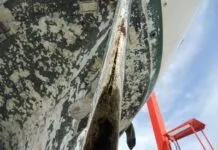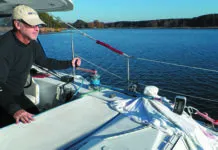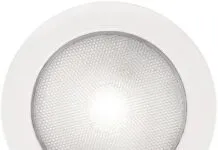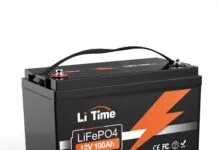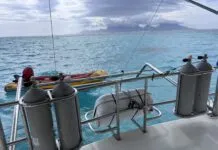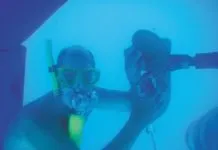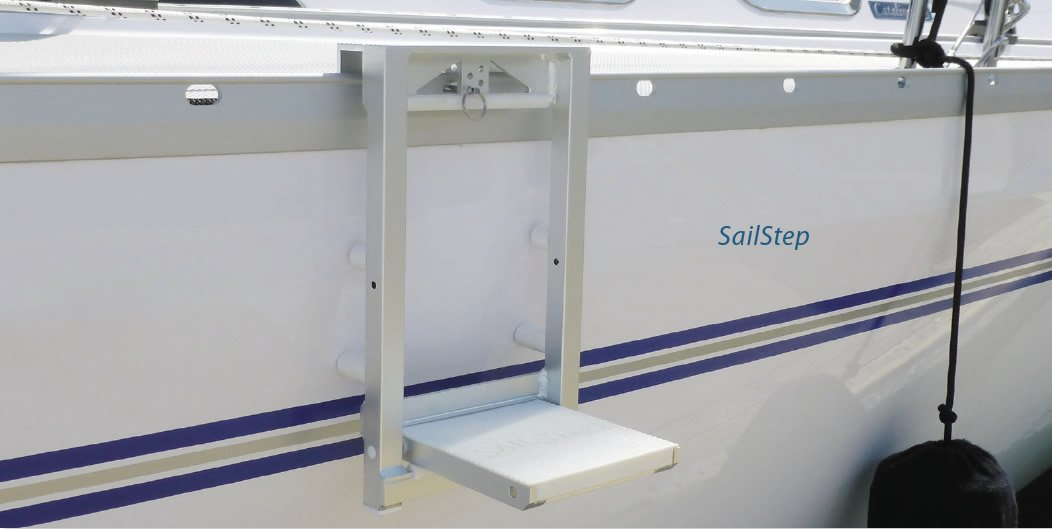
The holidays are upon us, and for those who are still working on a holiday gift list, here are a few ideas for fun, practical, and nautical stocking stuffers.
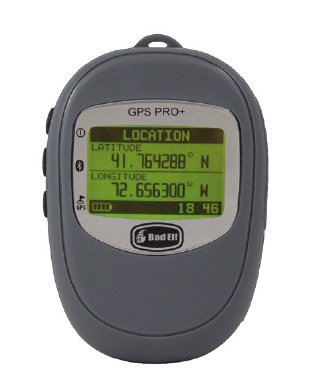
Bad Elf GPS Pro+
Worried that Santa can’t find you? Since our review of the Bad Elf GPS Pro (see PS January 2014 online), the U.S.-based company has released the Bad Elf GPS Pro+, an updated version of its popular Bluetooth GPS unit. Like its predecessor, the Bad Elf GPS Pro+ is an external Bluetooth wireless GPS receiver and datalogger created to provide and improve GPS accuracy for wireless devices (cell phones, digital tablets, etc.).
The GPS Pro+ features a number of improvements over the GPS Pro-the big one being the addition of GLONASS (GLObal NAvigation Satellite System) satellite capability. The use of both GLONASS and GPS improves stationary accuracy for the GPS Pro+ to 2 meters (a 0.2-meter improvement over the GPS Pro).
The GPS Pro+ also comes with a barometric sensor (for altitude) and new USB file system access to data logs. The GPS Pro+ contains 16 megabits of flash memory and can store up to 200 hours of trip data (twice that of the GPS Pro). It works with Android, iOS, and Windows platforms, and Bad Elf plans to have a driver for Windows 10 by years end.
Pretty much all of the things we liked and disliked about the GPS Pro can be applied to the GPS Pro+. Operation of the GPS Pro+ and most other key parameters (dimensions, weight, display size, satellite acquisition time, device compatibility, number of devices that can be connected, waterproof rating, etc.) remain essentially the same as the GPS Pro. Battery life (up to 28 hours when paired with a device and streaming GPS data; up to 32 hours while data logging with Bluetooth off) remains comparable as well.
The MSRP for new GPS Pro+ is $299, compared to $199 for the GPS Pro. In a nutshell, that additional $100 gives you a barometric sensor, USB cable accessibility to GPS streaming and trip data logs, double the trip data storage, a bit faster satellite lock time, and improved stationary accuracy of roughly 7 inches. While these new features will undoubtedly be worth the price increase for some users, for those that don’t require them, the GPS Pro is still a good bargain in our opinion, and both will fit nicely in a bulkhead-hung stocking. ($299, www.bad-elf.com)
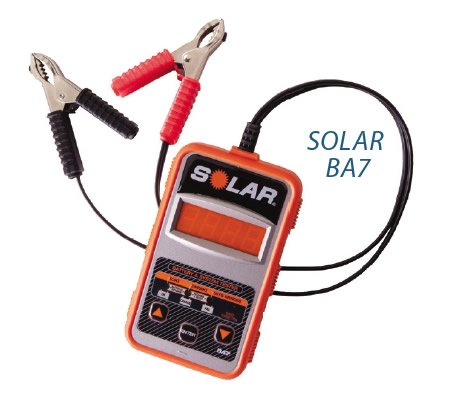
Battery Checker
For the tool junkie-or amp-hour anxious cruiser-consider the SOLAR BA7 Electronic Battery and System Tester from Clore Automotive. The gadget allows users to easily and quickly determine whether their boats battery or charging system is up to snuff for $70.
The convenient, handheld BA7 is compatible with a wide variety of 12-volt batteries (conventional wet cell, gel cell, AGM, spiral wound and deep cycle) from 100-1,200 cold cranking amps (CCA). The bright, four-digit LED display shows easy to read battery and system operation, providing both a numerical result and a pass/fail LED indicator.
Unlike traditional battery testers, the BA7 uses conductance technology to both analyze and load test the battery for more accurate diagnosis, providing a better picture of the batterys overall condition. As it works on batteries with a voltage range from 7 to 15 volts, it also eliminates the typical requirement to recharge the battery before testing.
Despite the name, the SOLAR BA7 isn’t solar powered, but it does use power from the battery being tested to operate, meaning theres no internal battery to worry about.
Testers found it very easy to use. Simply connect the red and black test leads to the batterys positive and negative posts, determine the battery type (standard battery versus specialty battery), then enter the battery CA or CCA rating, which is typically printed on the battery and can be found on the battery manufacturers website. The BA7 uses this CCA (which represents your batterys output when new) and compares it to its current CCA output. Test results take about 2 seconds to display.
In preparation for testing, users have to disconnect or isolate the batteries from each other and from any charging sources (solar or wind, for example). Batteries that can be isolated using battery switch(es) don’t need to be disconnected. They also don’t need to be isolated from your engine or generator, if theyre not running.
The BA7 conducts several 12-volt charging system tests, such as voltage from starter draw, alternator output at idle, and alternator output with a load-great for battery assessment and overall system diagnosis accuracy.
The BA7 weighs about a half-pound and features 20-inch clamp-on test leads, reverse polarity and over-voltage protection, and comes with a one-year limited warranty. ($70, www.cloreautomotive.com)
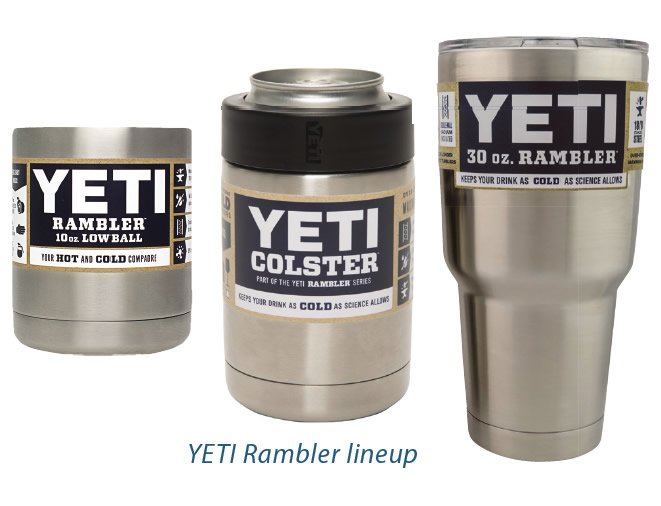
Yeti Rambler Drink Holders
Popular ice-chest maker Yeti recently launched a line of products to keep your drinks cold (or hot) while you enjoy them: the Rambler series. The roster includes the 10-ounce Yeti Rambler Lowball ($25, lid $5 extra), the 20- or 30-ounce Rambler Tumbler ($30 to $40, with lid), and the Yeti Colster drink coozie ($30). While the prices seem exorbitant for beverage holders, the products are made with Yetis usual excellent quality construction and should last many years.
All three are made with durable, kitchen-grade stainless steel; are designed not to sweat; are dishwasher safe (although we suggest handwashing), and are double-wall vacuum insulated to maintain the drinks temperature for hours, even in hot and sunny conditions. Yeti calls them personal drink coolers, an apropos description, in our opinion.
Sailors love products that serve double-duty, and the lowball is no exception. Start your day filling it with coffee and end your day filling it with your favorite adult libation. The Lowball also makes a great ice-cream bowl. While its too wide for most cup holders, it will not shatter like a glass lowball and is worlds better than drinking coffee (or whiskey) from plastic.
If youre looking for more of an on-the-go cup, the Tumblers are the best bet, and can-beer or soda drinkers will appreciate the Colster coozies unique and effective design, with its Thermolock gasket that seals in the chill. Both the Tumbler and the Colster will fit most cupholders.
Testers did note that the Tumblers, which have clear plastic lids, are not spillproof. To keep your drinks cold the longest, start with chilled beverages; lukewarm drinks will melt the ice faster.
If youre purchasing a Rambler product for an extra special person, you can even go the extra mile and have the stainless engraved with a boat name or the crews initials. You can find them at West Marine or online. ($25-$40, www.yeticoolers.com)
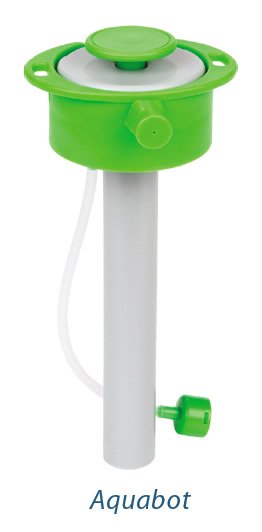
Lunatec Aquabot
Weve seen some useful niche products come from California-based Lunatec in the last few years (PS May 2013), and the companys relatively new Aquabot high-pressure water bottle cap is no exception. Made to fit most wide-mouth water bottles (like Nalgene and Camelbak brands), the Aquabot cap is essentially a small pressure sprayer that can spray up to 25 feet and has shower, stream, and mist patterns.
Users simply screw the BPA-free, plastic Aquabot cap onto a compatible water bottle, pump the handle a few times, and you have an instant pressurized sprayer. While you can still drink from the spray nozzle, the Aquabot has numerous other uses for sailors: washing off sandy feet or dirty hands, rinsing dishes, spritzing your face when its hot (or a quick, full-body shower), washing off veggies, cleaning snorkel gear, and rinsing grime off hard-to-reach places onboard (it even works upside down). It uses much less water than a faucet, yet its pressurized, giving it the advantage over a bucket, watering can, or traditional spray bottle.
It took a few attempts to figure out how to pressurize the bottle correctly (too much pressure and it wont work), but once that was figured out, the Aquabot was easy to use. Testers found rinsing dishes with the Aquabot to be a great way to conserve water. The Boat Galley co-author Carolyn Shearlock recommends using the Aquabot spray top and adding a half-tablespoon of white vinegar to the rinse water in the attached water bottle; the vinegar cuts the soap, and the pressurized spray rinses the dishes in short order.
Lunatec sells the Aquabot caps for $20 each, or you can purchase one with a BPA-free bottle for $26 to $28. ($20-$28, www.lunatecgear.com)
SailStep
While its too big for stuffing a stocking, the SailStep would make a thoughtful gift for the practical boat owner. If your freeboard is a challenge to hurdle from the dock-or perhaps you know a sailor whos vertically challenged or less nimble than they used to be-consider the SailStep, a portable boarding step that can be easily and quickly mounted to an aluminum toerail using a simple retaining pin. Unlike swim ladders or large, bulky boarding ladders, SailStep is a single step for a leg up from the dock or the dinghy that is easily deployed and stowed. Made of anodized aluminum (AL6061), the SailStep features a hinged, nonskid, plastic step (roughly 7 inches square) that is stable in use and can be folded up for storage; adjustable, rubber bumpers keep the step from marring gelcoat. It stores flat in the supplied, heavy-duty mesh storage bag and measures 16 inches long by 10 inches wide and 3 inches thick when stored. Testers only concern was that the small retaining pin could be lost; we suggest attaching a floating lanyard to the pins ring. Designed by sailors for sailors, the SailStep isn’t cheap-$279 through the holidays-but its well made, comes with a three-year warranty, and should last for many years; be sure to check out the video on the companys website. ($299, www.sailstep.com)









